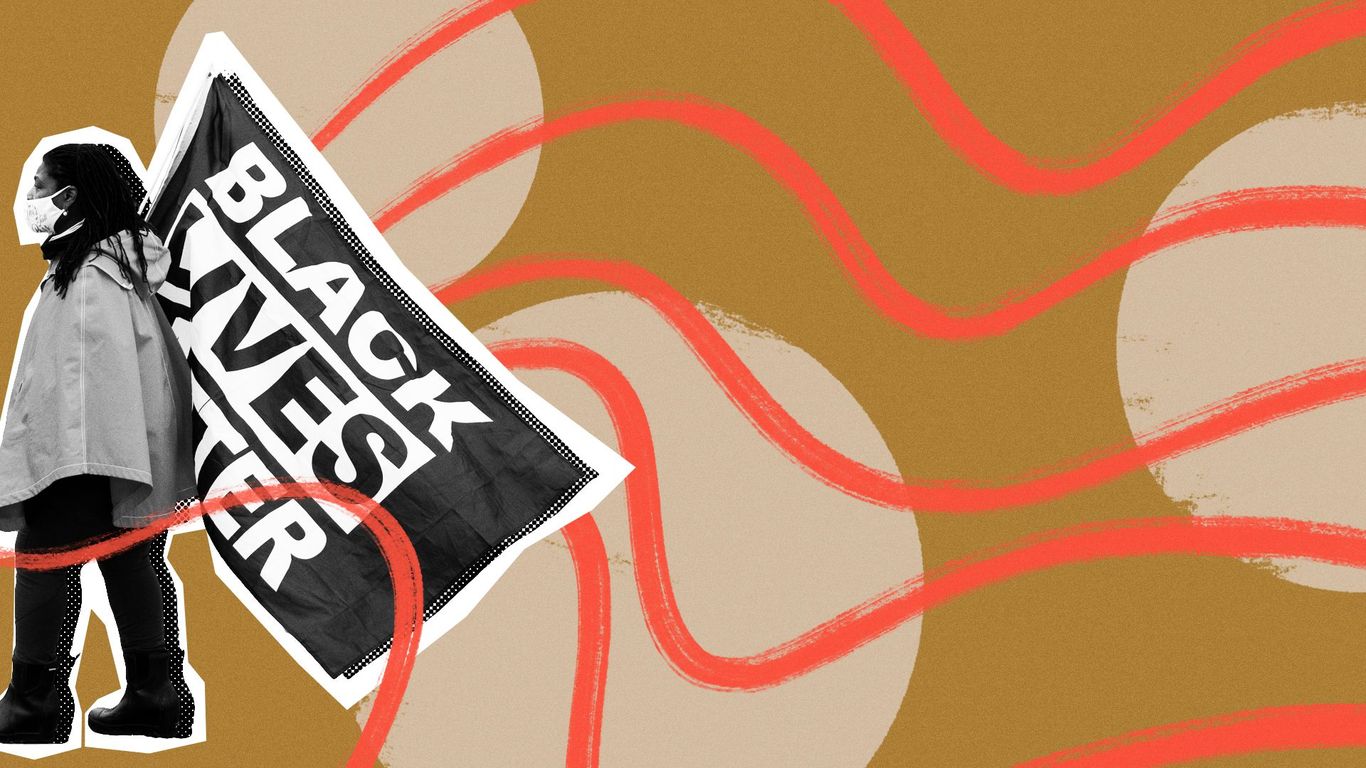The murder of George Floyd and the protests that followed fueled hope that the U.S. might finally reckon with systemic racism. Instead, a backlash has even some once strong allies backtracking.

Why it matters: A wave of proposed reforms rose up and crashed into the status quo bulkhead. Defund the police plans fizzled.Federal voting rights and police reform bills are stalled. But U.S. history shows the walls of inequality seldom collapse all at once. Instead, cracks emerge and with time turn into larger openings.
Though sweeping plans to revamp law enforcement appear dead, for the first time some officers were convicted for use ofexcessive force, including the former officer who killed Floyd.
Black, Latino, Asian American and Native American voters cast ballots in record numbers.
Activists toppled some statues once honoring former slaveholding Confederates and murderers of Indigenous people.
Details: The summer of 2020 saw millions across the U.S. take to the streets to demand that cities and the federal government radically change policing.
Multiracial, multiethnic demonstrators called for changes to laws protecting officers from prosecution over allegations of fatal excessive force. Often, those cases involved Black, Native American and Latinomale victims.
Demonstrations also called for eradicating racist symbols, from sports mascots to street names of known white supremacists.
At first, unlikely allies like Sen. Mitt Romney(R-Utah) and white residents in small towns joined Black Lives Matter marches and calls to end systemic racism.
Navajo activists in Gallup, New Mexico, and Mexican Americans in Laredo, Texas, organized demonstrations in support of Black Lives Matter.
Yes, but: The ongoing pandemic and violent rhetoric from President Donald Trump, who falsely alleged BLM protesters were linked to Antifa, helped dampen support for racial justice demonstrations.
Street violence also erupted in Kenosha, Wisconsin, after a video went viral showing Rusten Sheskey, a white police officer, shooting Jacob Blake, a Black man, multiple times in the back.
Police unions fought back and began publicly supporting Republicans like Trump who vowed to fight policing reforms. That starkly divided support for Black Lives Matter along party lines.
Rising murder and violent crime rates in some major cities allowed police unions and conservatives to argue BLM demonstrations contributed to crime — despite lack of evidence to support that position.
Don't forget: Following the 2020 election, a group led by Russell Vought, a White House budget director under Trump, began a campaign to rid discussions about racism and diversity from public schools under the pretext of attacking critical race theory — a graduate school concept that examines racial inequality baked into the U.S. legal system.
Flashback: After the U.S. fought an exhausting civil war over slavery and then emancipated enslaved people, the nation allowed Southern states to roll back civil rights and adopt Jim Crow laws that legalized segregation.
Following the Civil Rights Movement and President Lyndon Johnson's Great Society programs to tackle poverty, the nation turned to President Richard Nixon to elevate"law and order" over civil rights.
But, but, but: Some states, like Illinois and New Mexico, have passed sweeping police reform bills that banned chokeholds and required officers to wear body cameras.
And activists were quick to denounce and draw attention to a rise of anti-Asian American violence that resulted from the COVID pandemic.
The intrigue: Voters in cities like New York supported moderates like Eric Adams, a Black former police captain and now mayor-elect, allowing them to emerge as new leaders over more progressive candidates who supported BLM proposals.
Some prosecutors stopped pursuing minor crimes amid a court backlog.
What to watch: Whether the U.S. will again retreat from addressing systemic racism and ensuring equality for all Americans, regardless of race or ethnicity, in the name of "returning to normal."
Read More:




Everyone that said Black Lives Matter last year? What are you doing this year?